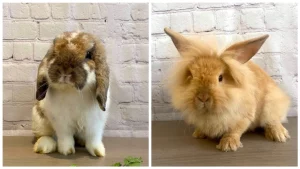Rabbits are clean and for the most part there are very few health risks involved with sharing our lives with them. However, some people may experience problems and it is always wise to know what signs to look out for and steps to take to try and prevent any problems occurring. It should be stressed that health problems from people contracting things from rabbits are rare, and owners should not lose sleep over them!
Firstly – there really is no need to panic! When people talk about “health hazards” from pets, everyone thinks first and foremost of diseases. From this point of view, pet rabbits are brilliant, and for the most part do not pose a significant disease hazard to humans.
However, keeping bunnies is not totally risk free. Problems do sometimes arise – usually not from diseases, but from allergies, which are the most significant “health hazard” from pet rabbits.
Companionship is not the only way rabbits can benefit humans.
Wild rabbits are an important part of the planet’s ecosystem. This is because they help to keep invasive plants (weeds) under control. In turn, this encourages other plants, insects, and birds to thrive. Also, pet rabbits are good for humans because they enhance our physical and mental health.
Although rabbits are good for the planet, some parts of the world have become overpopulated. For example, parts of Australia have become over-run with rabbits, and this has caused severe damage to crops. But, in spite of this issue, rabbits are still a species worth celebrating.
To keep your rabbit protected from pain, suffering, injury and disease, there’s a number of actions you can take. Before adopting or buying rabbits, carefully consider how they have been cared for and bred as this can affect their quality of life. It’s then important that your rabbits are neutered unless intended specifically for breeding. Day to day, your rabbits will need to be monitored to ensure that they are eating daily, and passing plenty of dry dropping. Also, check for signs of illness, injury or changes in behaviour to keep on top of your rabbit’s health.



